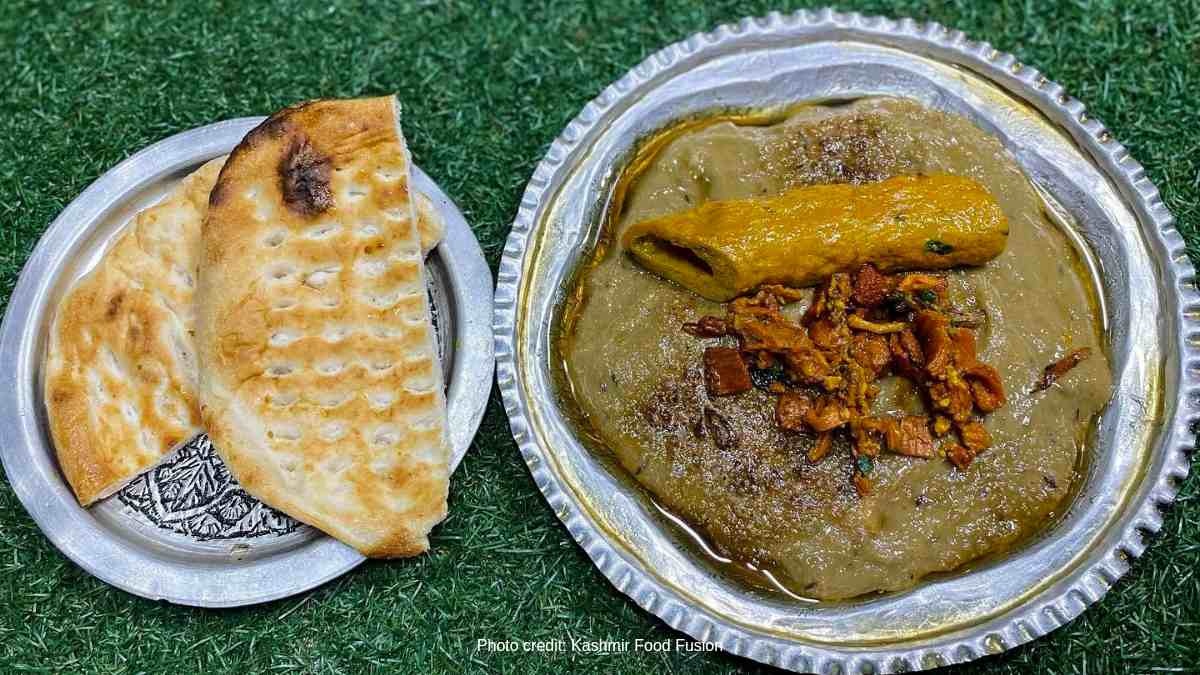As the golden hues of autumn have started sweeping across Kashmir, people eagerly embrace the tradition of savouring steaming bowls of Harissa, a mouth-watering delicacy that warms both body and soul.
Harisa, a slow-cooked dish that boasts a unique blend of flavors and textures, typically consists of tender, slow-cooked meat—often mutton—melded with a creamy mixture of rice and wheat.
For generations, the people of the valley have shared a deep affection for Harissa. As the temperatures steadily drop and winter inches closer, the Harisa craze gains momentum in the valley.
Likewise, in the bustling markets of Srinagar and other towns, the Harisa stalls are attracting locals and tourists alike. The sight of these fragrant stalls, where Harisa is ladled into clay pots and served with traditional flatbreads, is a quintessential part of the Kashmiri autumn experience.
“The preparation of Harisa is an art in itself, requiring patience and skill, where mutton is slow-cooked overnight in large copper pots, stirred meticulously to achieve the desired consistency. The rice and wheat are added gradually, turning the mixture into a creamy, porridge-like dish that is nothing short of a culinary masterpiece,” said Sameer Dagloo, a Harisa seller at Rambagh Srinagar.
Another Harissa seller from Srinagar’s downtown said: “Harisa is not just a dish; it’s a labor of love and tradition. The slow cooking process allows us to infuse the warmth of Kashmir into every bowl, making it a symbol of our culture and the changing seasons.”
Similarly, locals said as autumn leaves fall and the air gets crisper, there’s nothing quite like gathering with family and friends around a steaming bowl of Harissa. It’s a taste of home, a taste of Kashmir, and a taste of togetherness, they said.
“Harissa isn’t just food; it’s a piece of our heritage that warms our souls during the chilly Kashmiri winters. The sight of Harissa stalls in the bustling markets of Srinagar is a cherished part of our autumn experience,” said Burhan Nazir, another local resident from Rainawari Srinagar.
Notably, Harissa was first introduced to Kashmir during the 14th century with the arrival of the Sufi saint, Mir Syed Ali Hamdani (RA), from Persia (present-day Iran). Its name, “Harissa” comes from the word ‘Harasa,’ which means ‘to mash or crush’ in Arabic, referring to the way harissa is prepared. KNO
















